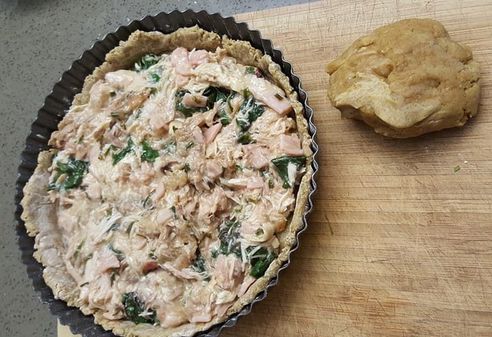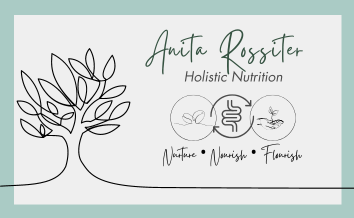|
This little winner arose after my seeking another way of using the chicken meat from all the stock and broth that I have been making for my GAPS diet. Chicken and veg were starting to wear thin for the family! So low and behold we have a gluten free, grain free, dairy free, egg free, paleo friendly chicken leek pie! INGREDIENTS:
FILLING
METHOD: PASTRY
FILLING I make this while the base is cooking.
Serve either as is (my kids take it to school in their lunchbox), or with a salad and a splash of fermented veg.
0 Comments
Here's a question you won't find on many health questionnaires I'm sure! But have you noticed that your dog (or random other friendly dogs) greet you with a friendly kiss to the leg? Sure it may be that you just have a loving friendly canine friend but there can be a few other reasons for this. Maybe you have a wound that needs attention or perhaps you have been visiting other hounds and you are being investigated for betrayal but it can also be indicative of a hormonal disturbance in your body.
By now you may have heard of the hormone cortisol. This is our chronic stress survival hormone which can have an influence on blood sugar levels, blood pressure, immune function and even the anti-inflammatory processes in the body. It is made in the adrenal glands. It has a very helpful friend called aldosterone. Aldosterone is also made in the adrenal glands and it belongs to a group of hormones called mineralocorticoids. It's main role is to regulate the amount of salt (or more specifically sodium and potassium) in our body which in turn regulates our blood pressure, balances electrolytes in our blood and controls the distribution of fluid in our body (ie. cankles, face swelling). Like all hormones in the body, there is the possibility of them being over-produced or under-produced. When aldosterone is over-produced which can happen under stress and when cortisol is also over-produced or if there is excessive processed salt in the diet (table salt - sodium chloride), signs can be an increase in blood pressure, low potassium, muscle weakness and tingling and even numbness in your extremities. One suggestion here is to eliminate processed salt. Processed table salt is simply sodium chloride as compared to a natural salt which contains an array of numerous naturally balanced minerals (around 84). It is extensively documented in studies (in particular the DASH study which has been cited by 2047 further articles) that dietary sodium from PROCESSED SALT is a key influence in elevated blood pressure and blood volume. This is the salt that is found in most processed foods. This salt as already mentioned needs to be minimised/eliminated. But that does not mean we should avoid all salt; in fact it is essential for optimal health to consume natures salt. Mineral salts have been shown to actually lower blood pressure in patients who have presented with mild hypertension (Nutrition Journal 2011, 10:88) One of the effects of chronic stress where there can be a cortisol "deficiency" or under-production of cortisol termed adrenal insufficiency as part of the picture of adrenal fatigue syndrome is an under-production of aldosterone. Some of the symptoms of this can be: * dizziness (especially if moving from a lying position to standing) * palpitations * irregular heart beat * swelling of extremities (ankles, wrists and a puffy face). * low blood pressure * low pulse * frequent urination * sweating * change in body temperature (often warmer) * thirst * craving salt (often plain salted potato crisps, olives and other salty foods) * dog licking your legs (without a wound) as you may be excreting excess salt. Many of these symptoms form part of the chronic stress picture that is far from uncommon today. There is a role that natural salt (such as Murray River flakes, Tassie Sea Salt, Himilayan salt, Celtic Sea Salt etc) plays in supporting both low and high aldosterone. By adding 1/4-1/2 tsp of a natural salt to 1L of water (and then drinking between 2-3L water a day), trace minerals are brought into the body and the balance of aldosterone can be supported. Aldosterone and renin levels can be tested by 24 hour urine collection or by a blood test to assess whether the adrenal glands are producing appropriate amounts of aldosterone and also to determine a potential cause of excess or deficiency. This is something to chat with your health professional about. But above all, any symptoms of chronic stress should not be taken lightly. The effects stress has at a physiological level in our bodies I believe is still grossly underestimated today. There is only so long we can ignore the effects of stress and every new sunrise brings the perfect opportunity to look into ways of managing the stresses in our life. Perhaps today is the perfect day to take that loving dog of yours out for some nature and take some deep breaths and switch the focus away from your legs! |
Anita RossiterHolistic Nutritionist. Categories
All
Archives
April 2019
|






 RSS Feed
RSS Feed